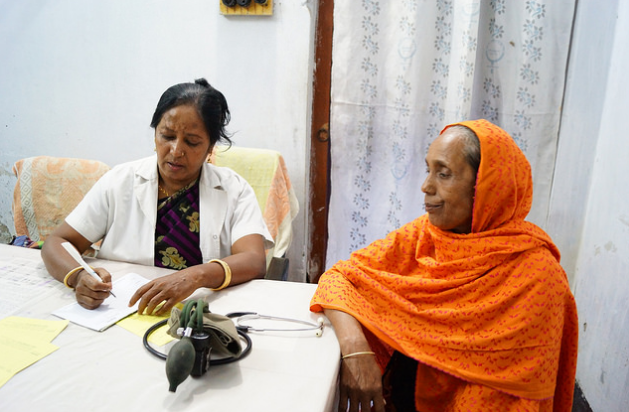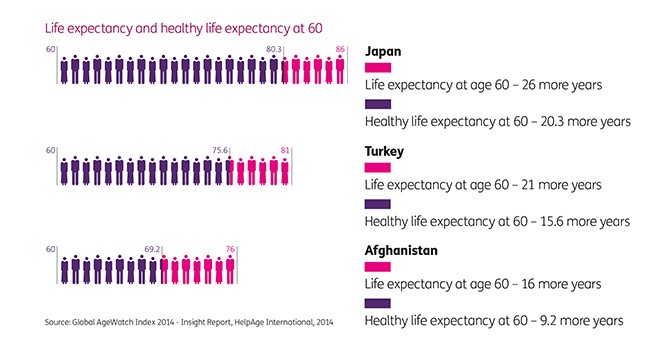
People are living longer in both developed and developing countries – but we are not necessarily living healthier longer lives, according to a new report from the The World Health Organisation (WHO).
The World Report on Ageing and Health shows that Governments all over the world need to adapt their policies and programmes to ensure they meet the health and care needs of all their populations throughout their life. Age International is supporting the UK launch of the report, the first of its kind.
Key findings:
- People are living longer: health budgets and health systems need to adapt to this changing reality
- Poor health does not need to dominate older age
- It is not necessarily true that the older people get, the more money needs to be spent on health care, but more expenditure on social care is necessary
- Old models of family care are not sustainable: state-provided care is essential
- Although 70 does not yet appear to be the new 60, it could be in future
‘Whether these extra years of life are also extra years of good health is key to the wellbeing of older people, their families and communities.’- Chris Roles, Director of Age International.
Chris Roles, Director of Age International, says: ‘We strongly support the WHO report on healthy ageing as it provides timely, expert and practical advice for governments, policy makers and those in civil society who promote the needs and rights of older people.’

Globe Age Watch Index 2014
The health impact of our ageing world
The WHO report illustrates that people worldwide are living longer. Today, there are already 868 million older people in the world – two thirds of whom live in developing countries.
Dr Margaret Chan, the Director General of WHO, states: “For the first time in history, most people can expect to live into their 60s and beyond. The consequences for health, healthy systems, their workforce and budgets are profound.”
The WHO report argues that a public health framework for healthy ageing is needed, pointing out that ‘healthy ageing is more than just the absence of disease.’
How to achieve healthy ageing
The WHO is developing a Strategy and Action Plan, drawing on the evidence of the World Report on Ageing and Health, and addressing five priority areas for action:
- Commitment to healthy ageing
- Aligning health systems with the needs of older populations
- Developing systems for providing long-term care
- Creating age-friendly environments
- Improving measurement, monitoring and understanding.
‘We’ve seen from our work in a wide range of low and middle income countries that improving health and care systems has a significant impact and enables older people to live fuller, more active and more secure lives,’ says Chris Roles, Director of Age International.
‘Together with the inclusion of older people in 15 of the 17 newly adopted Sustainable Development Goals, this report from WHO shows that older people and population ageing are starting to get the recognition they urgently need in these times of unprecedented demographic change.’
